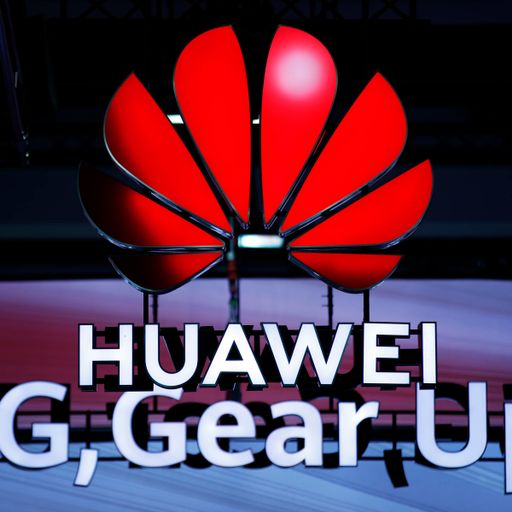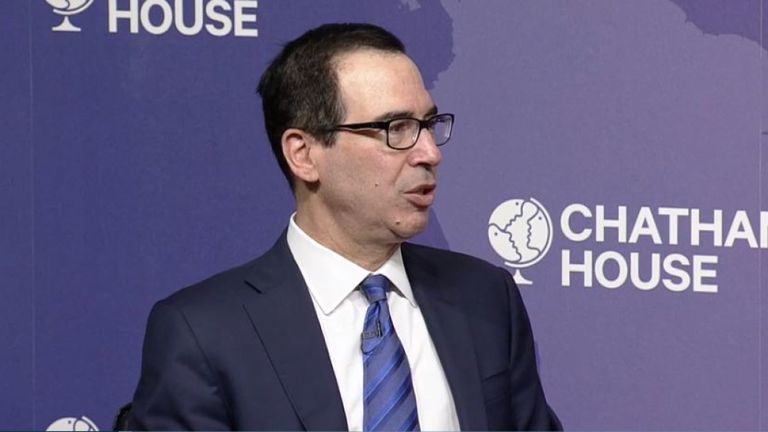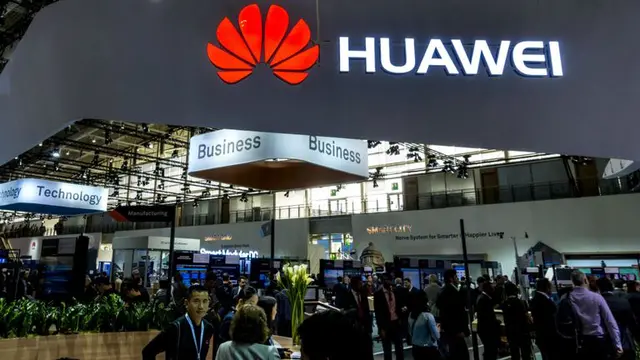Huawei will be allowed to play a limited role in the UK's 5G network, the government has said.
Among the conditions for the Chinese company's involvement are:
-
It will be excluded from all safety related and safety critical networks
-
It will be excluded from sensitive geographic locations such as nuclear sites and military bases
-
It will have a 35% cap in periphery (non-sensitive parts) of the 5G network
Sky's defence and security correspondent Alistair Bunkall said: "The National Security Council, on the advice of intelligence agencies, particularly GCHQ, has concluded that having Huawei on the peripheries of 5G can be managed and the security risks can be mitigated.
"It won't be a part of the core elements of 5G provision - that means in theory it won't have oversight of messages, data sharing, for example. Instead it will be limited to the non-core factors - things like provision of aerials and antennas. Even in that respect, its share will be limited to 35%.
"Actually Huawei's involvement overall will be really pretty limited but it reflects the influence the Chinese telecoms firm has in the technology market - an influence that few others are able to rival."
He added: "Britain's decision today is likely to be watched very carefully by a lot of other partners, particularly in Europe, who might decide if Britain can include Huawei in their infrastructure, why can't everyone else?"
Culture Secretary Baroness Morgan said: "This is a UK-specific solution for UK-specific reasons and the decision deals with the challenges we face right now.
"It not only paves the way for secure and resilient networks, with our sovereignty over data protected, but it also builds on our strategy to develop a diversity of suppliers.
"We can now move forward and seize the huge opportunities of 21st-century technology."

Huawei: The risks explained
Opponents of the idea had feared that allowing the Chinese tech company to build the network would be handing control of infrastructure to Beijing.
There were also concerns that, with
Huawei
's close links to the Chinese government, the equipment could be used for espionage, something the company has always denied.
After the government's announcement, Huawei vice president Victor Zhang said: "Huawei is reassured by the UK government's confirmation that we can continue working with our customers to keep the 5G roll-out on track.
"This evidence-based decision will result in a more advanced, more secure and more cost-effective telecoms infrastructure that is fit for the future. It gives the UK access to world-leading technology and ensures a competitive market."

25 Jan: Huawei a post-Brexit trade obstacle for US
The debate has caused tension with the US, which had warned Prime Minister Boris Johnson not to approve Huawei due to the security worries. US Secretary of State Mike Pompeo is in London on Wednesday and will meet Foreign Secretary Dominic Raab.
A number of MPs had also voiced their concerns, among them Tom Tugendhat, who warned that the UK would be "allowing the fox into the hen house".
After the decision was announced, he tweeted: "Overall, this statement leaves many concerns and does not close the UK's networks to a frequently malign international actor. If we're to avoid finding ourselves in a similar position with 6G in the future, we will need to act now. I will be talking to ministers urgently."
Ciaran Martin, the chief executive of the National Cyber Security Centre, said the limits on Huawei's involvement would ensure the UK had a "very strong, practical and technically sound framework for digital security in the years ahead".
The implementation of 5G is expected to bring download speeds 10 times faster than 4G and is seen as critical to the country's economic future as it leaves the European Union.
Sky News business presenter Ian King said: "I think you'll hear sighs of relief from all four of the major suppliers. They've all started building 5G services and all of them have Huawei kit in there."
There was also a consumer element, he said, adding: "American mobile phone users pay at least $20 a month more than British customers do and one of the reasons the mobile operators suggest for this is because America has taken Huawei out of its mobile networks so they have to replace it with more expensive kit from elsewhere."
 简体中文
简体中文

